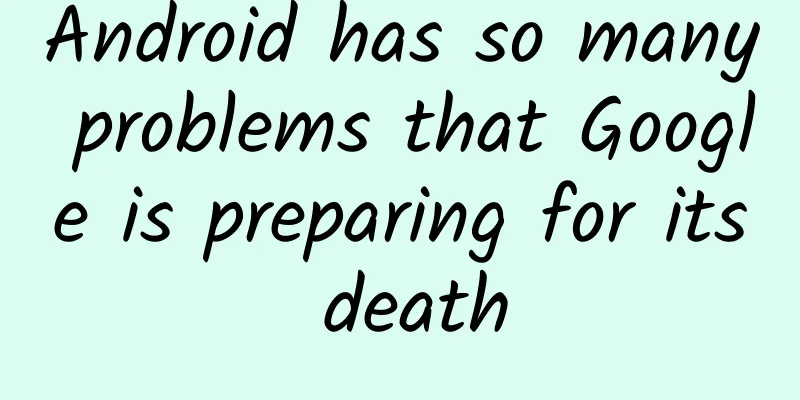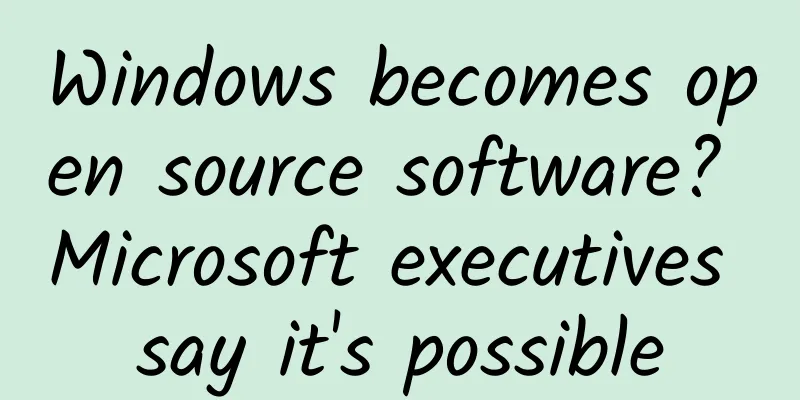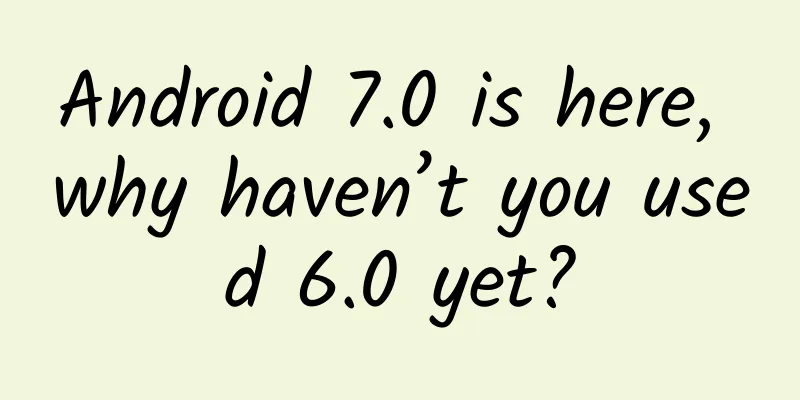Android has so many problems that Google is preparing for its death

|
On August 23, Beijing time, according to a report by the technology website ZDNet, on the surface, Android seems to be a very successful platform. In the second quarter of this year, Android's share of the global smartphone market was as high as 86%, while the second-place iOS had a share of only 12.9%. The two jointly dominated the market. But Android has also been plagued by problems that Google can't seem to solve. The first is fragmentation, which means that developers' apps must be able to run on hundreds of Android vendors' platforms. Of course, developers can focus on devices from large vendors, such as enterprise software company Salesforce, but this also prevents Android from becoming the preferred platform for developers. Then there is the issue of updates. Google releases a new version of Android every year, but the penetration of the new system is very slow. It takes about 4 years for the new version of Android to fully penetrate the entire ecosystem. Four years is a long time in tech. Google's own Nexus phone system is upgraded very quickly, but users of other manufacturers have to wait at least several months, and some may never be able to upgrade. In fact, short of buying a Nexus phone, the easiest way to get the latest Android system is to buy a new device. So, despite its dominant market share, it's clear that Android has some serious problems. Many issues are entangled in the open source nature of Android. Android is an open source system, which means that every time Google releases a new version, OEM manufacturers and others are free to modify it. This leads to fragmentation problems and system upgrade problems. Another problem with Android is that it is based on the Linux kernel, which is not only old but also plagued by legal issues. The Linux kernel was never designed for smartphones and IoT devices, but it is now being introduced to these devices. Of course, Android has made significant modifications to the Linux kernel, but it can only go so far, especially when you are trying to optimize power consumption or when you need the platform to run in real time (the Linux kernel does not run in real time, but uses a scheduler.) In addition, these old codes are very prone to defects and vulnerabilities. Legal issues, especially intellectual property issues, are a sword hanging over the heads of Android manufacturers. Microsoft takes billions of dollars in licensing fees from Android hardware OEMs every year, which eats into their already meager profits. A completely new platform built from the ground up can free OEMs from these problems. Google is currently developing new platforms, such as Project Fuchsia. Of course, Project Fuchsia is still in its early stages, but it is clear that Google is trying to develop a new platform that is not based on the Linux kernel, and the end of the Linux kernel will eventually mean the end of the Android system. The new operating system constructed from the bottom up can not only fit today's devices, but also avoid the trouble of intellectual property issues. The new system will likely be modular in design, allowing it to be optimized for devices ranging from desktop computers to smartphones. It would be a truly unified platform that Google could license to hardware manufacturers, rather than adopting the open source model of Android. Authorization will give Google greater control over hardware devices. Messy apps will not be able to run rampant in the system, and users of old devices will no longer have to worry about not being able to get updates. This will be a platform truly built for the 21st century. Don't expect this to happen anytime soon, though, as operating systems take a long time to develop. But by the same token, don't expect Android to be around forever. Android has a lot of really serious problems, and Google knows it, and the fact that the company hasn't done much to fix them is perhaps the best proof of that. How long will it take for an Android replacement to be available to users? I guess it will take about 5 years, but companies like Google have the resources and capabilities to speed it up significantly. But Google may also lose interest in developing a new system and think that Android is good enough. As a winner of Toutiao's Qingyun Plan and Baijiahao's Bai+ Plan, the 2019 Baidu Digital Author of the Year, the Baijiahao's Most Popular Author in the Technology Field, the 2019 Sogou Technology and Culture Author, and the 2021 Baijiahao Quarterly Influential Creator, he has won many awards, including the 2013 Sohu Best Industry Media Person, the 2015 China New Media Entrepreneurship Competition Beijing Third Place, the 2015 Guangmang Experience Award, the 2015 China New Media Entrepreneurship Competition Finals Third Place, and the 2018 Baidu Dynamic Annual Powerful Celebrity. |
<<: FIIL DIVA headphone experience: Wang Feng spent a year to become a better product manager
>>: What is it like to have a 2GB per second internet speed? !
Recommend
India may review 275 Chinese apps again. What’s going on? Why does India need to review Chinese apps again?
India may review 275 Chinese apps again. What’s g...
Xiaomi, on the eve of a breakout or on the brink of falling?
"Good student" Xiaomi handed in a finan...
I woke up with a piece of skin peeled off! Don’t underestimate low-temperature burns!
In winter, a series of "heating tools" ...
Yuzu Investment Classroom Series Courses (Third Phase + Fourth Phase + Fifth Phase + Sixth Phase + Highlights Edition)
Resource introduction of the Yuzu Investment Clas...
I'm so angry! Where did it come from?
Almost all of us have experienced "belly blo...
MediaTek can't get over Qualcomm, and there are still domestic chips chasing behind
If a domestic chip wanted to catch up with Qualco...
A complete planning and implementation plan!
To plan and execute by yourself, you need to comp...
Today is the Spring Equinox丨It is the most beautiful time of the year, live up to the spring and yourself
Two swallows flew to the willow courtyard, and th...
If you have these "three pains and one swelling", your kidneys may be in danger! Don't do these four things!
References [1] Quan Meihua. How to scientifically...
A guide to building advertising pages for three major industries, including medical beauty and dentistry!
This article provides you with a guide to buildin...
Will the 2020 highways be free during the Dragon Boat Festival holiday? There are three days of Dragon Boat Festival holiday. Will the highways still be free?
Will the 2020 highways be free during the Dragon ...
Why is the Earth a sphere? Not all celestial bodies are spheres!
Since ancient times, there have been countless di...
The world's most powerful laser is activated! What is chirped pulse amplification technology?
The world's most powerful laser is activated!...
Hey, Facebook is going to "copy" WeChat?
[[259310]] Facebook is learning from WeChat and i...
Rare! New discovery by Chinese observatory! Received photons from 2 billion years ago!
On the evening of October 9, 2022, Beijing time, ...









